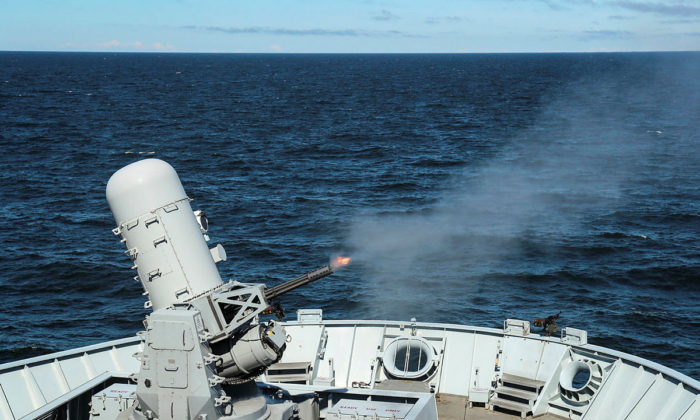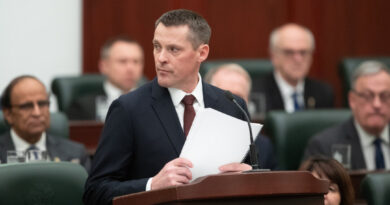Britain Abandons Warships, Helicopters, and Drones in Defence Budget Cuts amid Growing Foreign Threats
Defence Secretary John Healey informed Parliament that cutting spending would save the government £150 million over the next two years.
The UK has canceled six defence projects, including former Royal Navy flagships, helicopters, and army drones, to save costs as threats abroad increase.
Labour had to make tough decisions to decommission outdated military equipment, Healey told the House of Commons.
The cost-saving measures include decommissioning ships like HMS Albion, HMS Bulwark, HMS Northumberland, along with Army’s Watchkeeper drones, Wave class tankers, and Chinook transport helicopters. Healey mentioned that Royal Air Force’s Puma helicopters would also be retired from service after March 2025.
“These decisions are expected to save the Ministry of Defence (MoD) £150 million over the next two years and up to £500 million over five years – all of which will remain in defence,” he informed the MPs.
All current personnel working on these projects will be redeployed or retained, as mentioned in Parliament.
“These are sensible decisions that previous governments neglected to make. They will ensure better value for taxpayers and better outcomes for the military,” Healey stated.
He acknowledged that the cuts come at a time of global conflicts but emphasized the need to adapt quickly to technological advancements.
Former defence committee chairman Sir Julian Lewis, responding to the announcement in the Commons, expressed concerns about potential vulnerabilities due to the absence of certain defence capabilities.
Military sciences director Matthew Savill from the Royal United Services Institute think tank noted that the cuts primarily affect equipment nearing retirement.
“However, the decision to either decommission or cut them for minimal savings over five years in the current international climate indicates the tight constraints on resources at the MoD,” he remarked.
Defence Spending
The government is conducting a strategic defence review to enhance defence capabilities and achieve a spending target of 2.5 percent of GDP on defence.
The review’s call for evidence closed on Sept. 30, with recommendations expected to be published in the first half of 2025.
He confirmed that specifics on reaching the defence spending target would be outlined in the spring.
“Scrapping essential defence capabilities and undermining national security,” he criticized in the Commons on Wednesday.
The government’s budget includes a £2.9 billion boost in defence spending to modernize the armed forces and maintain a leading role in NATO. Additionally, £3 billion per year is allocated to support Ukraine “as long as necessary.”
Healey welcomed these financial commitments from the Treasury and the separate funding package for Ukraine, including £7.5 million for new attack and surveillance drones invested through a coalition with the UK and Latvia.
Meanwhile, Russia’s military claimed to have intercepted two British-made Storm Shadow missiles.
Regarding the use of Storm Shadow by Ukraine, Healey refrained from disclosing operational details, citing security risks and potential benefits to President Putin from public debates.
Addressing Parliament on Thursday, Prime Minister Sir Keir Starmer assured that decisions on Ukraine are carefully coordinated with allies, and actions are being taken against Russian assets in multiple forums.
PA Media contributed to this report.





